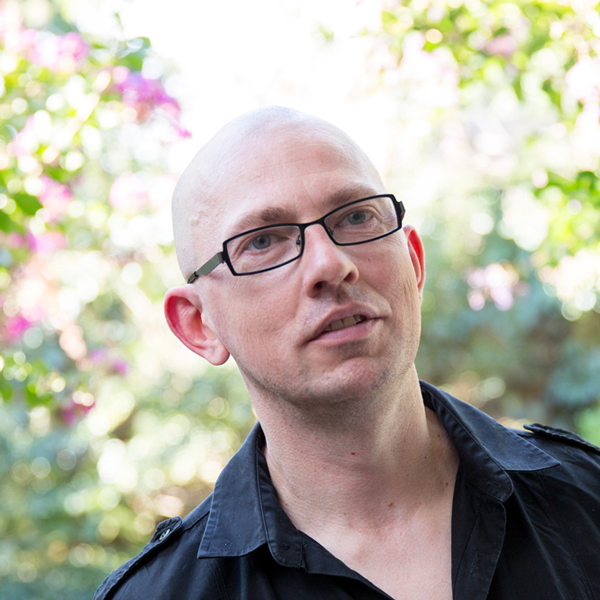What makes a good business leader? Our Master of Enterprise attracts managers looking to take their division or business to the next level. We catch up with Peter Richardson (class of 2013) to see how the degree has had an impact on his company, learn about the innovation cycle and his tips for new business owners.
- Peter Richardson

Managing Director, Doorstep
Initiative
Tell us about what you do:
I am the Managing Director at Doorstep - a small food delivery service in Sydney employing nearly 40+ people. The food delivery business is difficult; it keeps me motivated and I love it. Our focus is dealing with five different temperature rated perishable products that need to be delivered to consumers in a time critical manner. So a big challenge for us is to balance both the business-to-business (B2B) interactions with business-to-consumer (B2C) demands.
How did you get into this industry?
I was raised into it. My parents started this business 25 years ago when my father Geoff Richardson had the initiative to start Australia's first 'organic' website. At the time, people's reaction was 'what's a website?' Like all early adopters they told him he was crazy to spend the (then) $3000 on upgrading to an online shopping cart.
Why did you decide to study the Master of Enterprise (MoE)?
After working in this industry so long, it’s impossible to see my product, organic food, as new and novel, so what I’m most passionate about is bringing innovation to the business. I wanted a degree that would help me refine my skills. More importantly, the MoE helped me formally label the things I was already doing. Naming these processes allowed me to develop measurement tools, which, in my business is absolutely critical.
The intensive modules were also great. Coming from interstate I could fly-in and fly-out and still keep up with the demands of my business.
What is your key takeaway from the degree?
I’ve learnt so many important tools but underpinning everything for me is the innovation cycle. I really believe it is core to how every business SHOULD be operating.
The innovation cycle can be large. It can also be small. It’s about making many tiny improvements to gain micro advantages relative to your competitors and feeding that competitive advantage back into the system. Important to the process, and this is especially true of our business, is the inclusion of employees in this cycle. Gaining small advantages means their effect is magnified on a large scale.
What is it like studying in the Master of Enterprise?
The MoE was uniquely different from other university options I considered simply because each assignment is practically applied inside your own workplace making it relevant and interesting. If youa re the business owner you are also the direct beneficiary of any improvements or insights that might be gained through the course of each practical assignment.
Intially I had extreme reservations about my ability to 'talk business'. However Danny Samson’s, (the Program Director’s), ‘no-nonsense’ approach to results-driven business practice instantly won me over. It was both disarming and also extremely valuable.
What is the biggest challenge that you face in your career today?
Sleep. Getting up at 3:30am is a big one! Seriously though, expansion and growth stress are my pain points. This is both in terms of service delivery and also on the balance sheet.
We’ve increased our bottom line by 40%p.a. since I graduated from the MoE, which is great but as a physical business, this means we must invest heavily back into in site and equipment, not to mention inventory. More customers means we need more depth of stock while at the same time having to continue the acquisition of new lines to keep your existing customers engaged.
What are your tips for people thinking about starting their own e-commerce business?
Focus on the basics and decide whether you are going to compete on price or differentiation. Set your price according to what you need to build stability and then work on delivering your model. Keep looking ahead and revising your strategy to suit. Never let yourself feel complacent.
What should you never leave home without?
Fear and optimism.